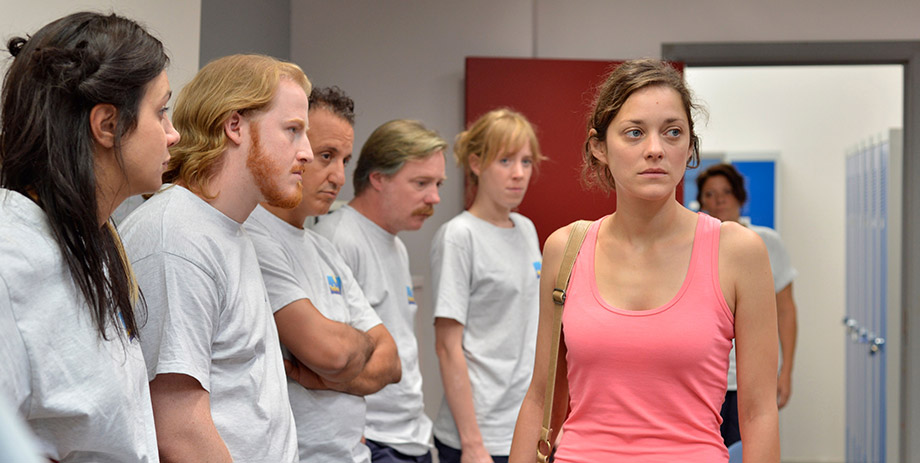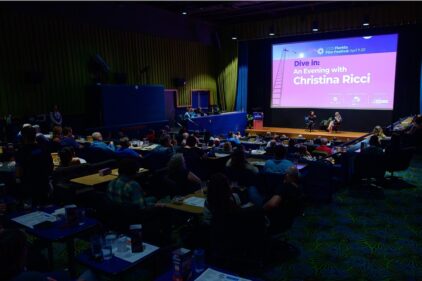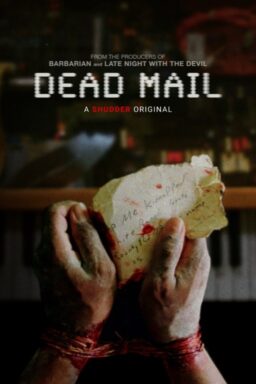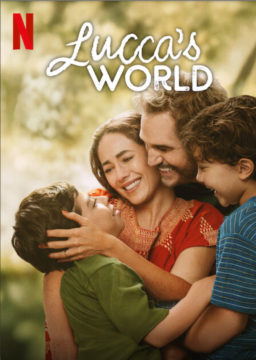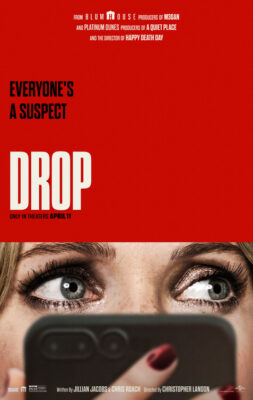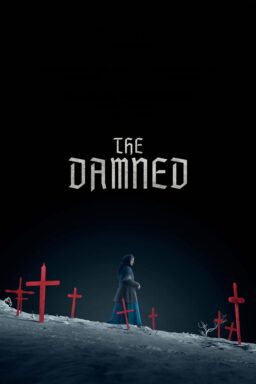My final dispatch from the 2014 Toronto International Film
Festival catches some of the best films of this year’s fest, all from
continents other than North America. A class system in Russia that is
destroying people. The other side of “The French Connection.” A cleverly
crafted tale of Korean fishermen forced into a nightmare at sea. A
devastatingly real look at the economic inequality in France. And a film that’s
as hard to describe as one of its creator’s previous masterpieces, “Songs From the
Second Floor,” a work that Roger adored. These works have little in common except that their country of origin is not the United States, and so they may be
harder for you to see, especially if you don’t live in a major market. They are
all worth seeking out.
The best of the bunch is a film you’ll be hearing about a
lot this awards season—if there’s any justice—the Dardennes Brothers’ “Two Days, One Night,” starring Marion
Cotillard. The Oscar winner does what I consider to be the best work of her
career as Sandra, a Belgian worker coming back to the force after a delayed absence.
She learns that her boss has essentially turned her co-workers against her by
telling them that to reincorporate Sandra’s salary back into the company’s
budget, they’ll have to forego their bonuses. After arguing that this poisoning
of the well wasn’t fair, Sandra is given the weekend to convince her former
colleagues to bring home 1,000 fewer Euros so she can keep her job. It’s a move
designed to breed dissent in a work force, and the Dardennes’ criticism of such
corporate behavior is insightful and scathing without being didactic. As they
have in films like “La Promesse” and “Rosetta,” Jean-Pierre Dardenne and Luc
Dardenne take a very specific, human story and allow it to grow into an
internationally relatable one through the sheer force of its realism. This is
one of the best films of 2014. We’ll have an interview with the Dardennes
conducted at TIFF later this year. Don’t miss it.

The Dardennes’ film was an import from the 2014 Cannes Film
Festival to TIFF, as was the Sony Pictures Classic film “Leviathan,” from the director of “Elena” and “The Return,” Andrey
Zvyagintsev. “Leviathan” is an ambitious, sprawling work, as it gradually
unfolds like a storm crossing the Russian plains. It is a character-driven
piece that also serves as a scathing commentary on a societal class system that
is entirely broken. Like the Dardennes’ film, it never feels like a moral
message movie, but if you walk away from it without thinking something is
deeply flawed in the part of the world it captures, something is wrong with
you. This is a film about people struggling through life’s horrors, aided
almost solely by a constant supply of vodka.
Nikolai (Aleksey Serebryakov) lives in a coastal town on the
Barents Seas with his wife Lilya (Elena Lyadova) and teenage son Romka. His
most valued asset—his home—is being threatened. The government has essentially
told him that his home is now theirs. They’re taking it from him as
government-owned land, and it’s clear, especially after a painfully rote
reading of a legal judgment, that Nikolai has few options. His old Army friend
(Vladimir Vdovichenkov), who is now a lawyer in Moscow, comes to town to help,
but he can’t navigate the corrupt system any more effectively, sending everyone
involved down a rabbit hole of increasing drama.
“Leviathan” is a tough, brutal film, but it rewards the
patient viewer. I wish it was a little more tonally balanced—Zvyaginstev’s
previous works didn’t feel quite so insistent in their gloom—but this is
undeniably refined filmmaking. Watch how deftly Zvyaginstev uses his setting to
invoke mood. It’s almost another character—this bleak landscape with evidence
of a humanity that’s been lost to the passage of time.

Humanity, or the destruction of it, also sits at the core of
Shim Sung-bo’s excellent “Haemoo,” a
film about a tragedy so deep that it basically breaks everyone within its
radius. Sung co-wrote Bong Joon-ho’s masterpiece, “Memories of Murder,” and the
director of “Snowpiercer” and “The Host” returns the favor by co-writing and
producing here. The result is a film that doesn’t quite have the perfect tonal
balance of Bong’s work but connects through the sheer force of its
storytelling, well-defined characters and unique settings. “Haemoo” is a grim,
relentless film, but it’s one that justifies its darkness through the power of
its filmmaking.
Kang (Kim Yoon-seok of the great “The Chaser”) has reached
the end of his rope. He’s the captain of a fishing boat that hasn’t been
bringing home an adequate haul to pay his crew. He catches his wife cheating on
him. And his boat is in such need of repair that his way of life is threatened.
Illegal but lucrative opportunity crosses his path when he’s asked to help
smuggle some immigrants from China to Korea. Kang will head out into
international waters, a boat will transfer the human cargo, he’ll come back.
What could go wrong?
I won’t spoil what does go wrong but Shim and Bong cram a
lot of character, action and social commentary into the skeleton of their plot.
Kang’s bitter, violent cynicism is balanced by a young crew member named
Dong-sik (Park Yu-chun), who falls in love with an immigrant named Hong-mae
(the excellent Han Ye-ri). Their romance casts a little light into what becomes
an increasingly dark tale of high seas adventure.
“Haemoo” features a few sequences that stand with Bong’s
best work, including the initial transfer of the desperate people looking for a
new life in the middle of the ocean on a rainy night. It’s a breathtaking
scene. And I liked that I never quite knew where Shim’s was going. Like the
unmoored lives it captures, it doesn’t end up where one expects it to land.
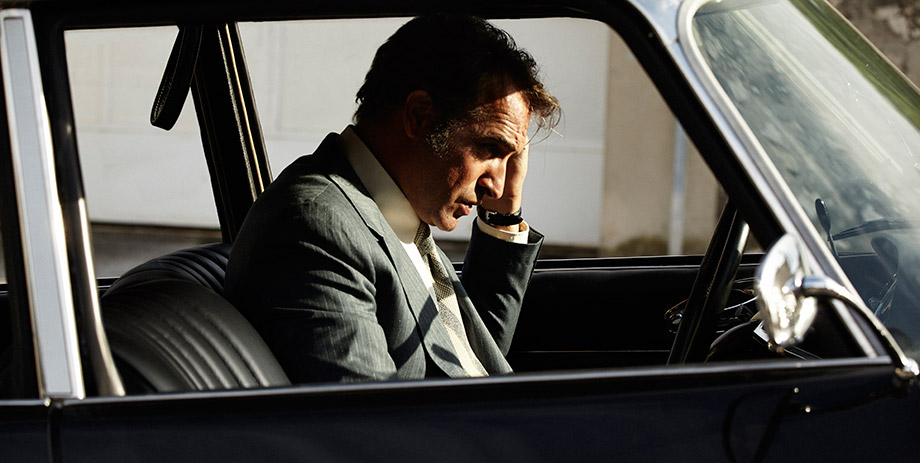
More conventional but tightly constructed enough to maintain
its entertainment value is Cédric Jimenez’s “The Connection,” a chronicle of the deconstruction of both a
criminal empire and the structure put in place to dismantle it, shot on actual
35MM film in some of the most beautiful locales in the world. “The Connection”
is familiar but solid, the kind of work that should make a sizable chunk of
change on the arthouse circuit when it’s eventually released. It has two solid
performances at its core, and just looks great from first frame to last.
Jean Dujardin stars as Pierre Michel, a juvenile magistrate
forced to move over to the drug trafficking beat during the height of “The
French Connection,” the heroin trade chronicled so memorably in William
Friedkin’s classic. Consider this the other side of the coin. Michel is
well-intentioned, having seen the impact of drugs on the youth of his country,
but seemingly up against an immovable force in the powerful Gaetan Zampa
(Gilles Lellouche), France’s reigning drug kingpin. Michel’s strategy to weaken
Zampa is to damage everything around him. How do you take down a King? Kill his
pawns first. What follows is a great battle of wills between Michel and Zampa,
all set against the gorgeous French Riviera.
There are some phenomenal scenes in “The Connection,”
including a great sequence between our hero and villain that reminds one of “Heat”
in that our two central characters rarely actually interact. Instead, we watch
Michel and Zampa deal with their foot soldiers—the cops, some of whom are
clearly not on the up and up, and the criminals. As the underworld starts to
shrivel from the light, both sides of the war intensify combat. There’s nothing
really here you haven’t seen before, but it’s well-made and never less than
entertaining.
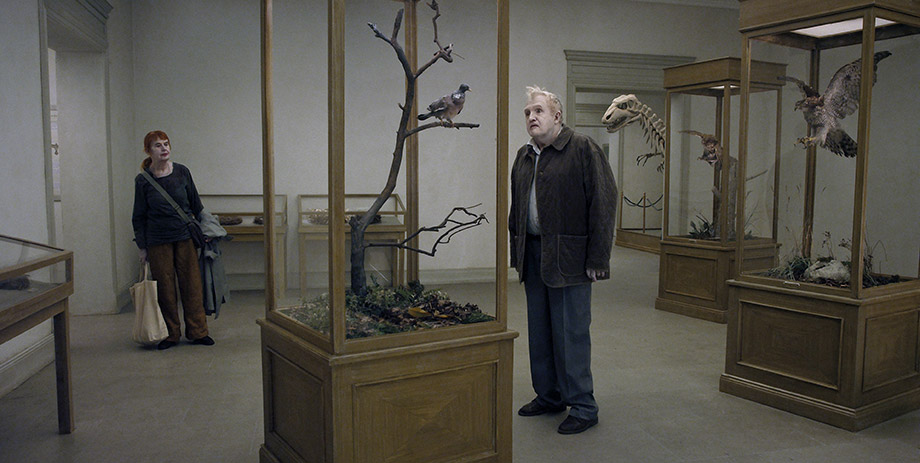
Finally this year, we have the defiantly unique “A Pigeon Sat on a Branch Reflecting on
Existence,” the third part of a trilogy “about being a human being” by
Swedish filmmaker Roy Andersson, following ”Songs From the Second Floor” and “You,
the Living.” Like those films, “Pigeon” is a deliberately stagey, quirky,
strange piece of work that challenges viewer expectations of film by blurring
the lines between traditional narrative, fantasy and something almost
indefinable. It suffers a bit from the law of diminishing returns on Andersson’s
vision and isn’t as consistently mesmerizing as its first half-hour promises,
but there’s so much clever, hilarious, solitary filmmaking here that it can’t
be ignored.
“Pigeon” consists of vignettes, scenes in which the camera
never moves, as if we’re watching a series of brief one-act plays. The curtain
goes up, we watch anywhere from a few seconds to a few minutes, and then the
curtain falls again, rising anew on an entirely new scene.
The vignettes are sometimes loosely connected—we regularly
return to a pair of novelty gag gift salesmen who sell vampire teeth, a bag of
canned laughter and a grotesque mask with deadpan delivery—and sometimes have
no connection at all. Much of “Pigeon” is very funny, but Andersson turns the
tonal table in the final half hour, ultimately ending on notes of horror and
melancholy. What it means to be a human being to Andersson is what it means to
be unpredictable—life can take gorgeous or tragic turns with every curtain
raise. Just like TIFF itself, one never knows what to expect next.

